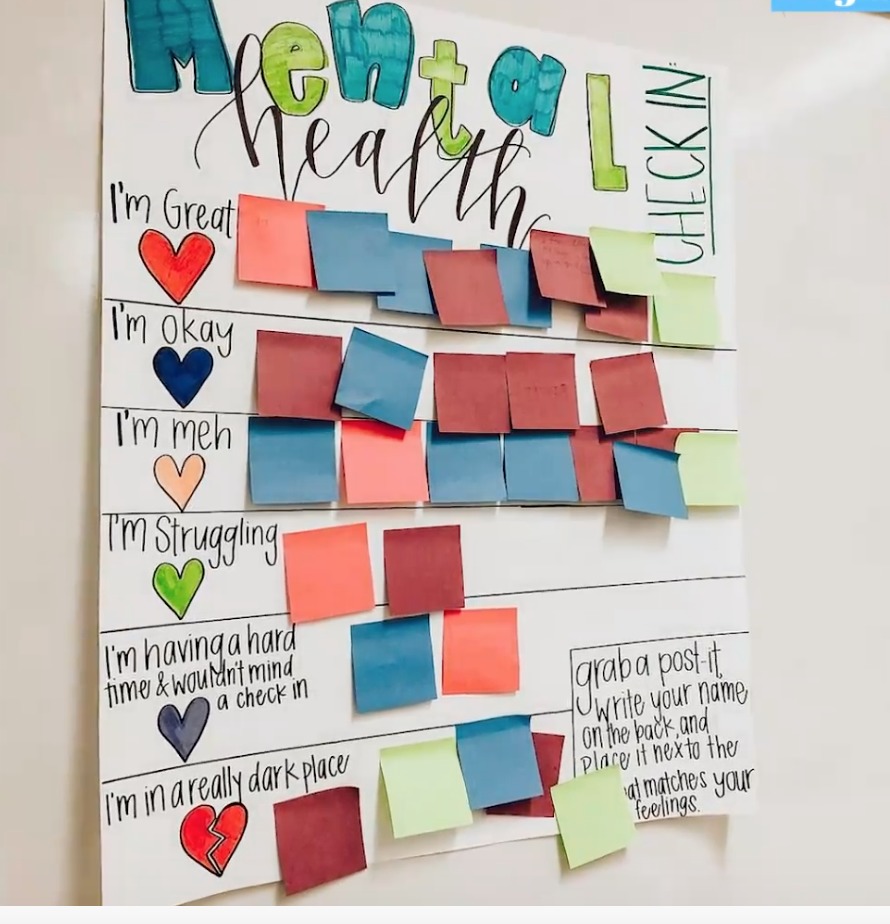My final thoughts on the return to brick and mortar school for our oldest students, ages 13 and up for both parents and these adolescents themselves. This has been so very tough, so I hear from students themselves and so I read–and I have done my share of reading on the subject.
Mostly, what I hear is:
“It is hard to focus.”
“It is boring.”
“It is stressful.”
“When I am in school, it is not the same. The ‘fun’ is gone.”
“It’s not safe at lunch.”
“Too much busy work.”
“I feel like I am in solitary confinement.”
“I’m worried about going back to school.”
Bet you’ve heard it all and are tired of hearing it.
Parenting this group of students is challenging under the best of circumstances and I fondly recall it well–and sometimes, not so fondly. This group of kids rightfully desires increasing amounts of independence, and the events of the past year have been overwhelmingly stifling in that regard.
These kids are increasingly self-sufficient, better organized (we hope), more aware of their strengths and weaknesses, and are more keenly aware of emotions in terms of their own and others’ emotions. They strive to seek out new experiences, continue to question authority, seek friendships, perhaps begin to show an interest in dating, and typically desire a social life outside the family. Typical teenage rites of passage include learning to drive, going out with friends without family members present, and/or getting a part-time job. As you are aware, the ‘pause button’ has been pressed for some of these experiences over the past year–this has been disappointing at best.
Today’s letter targets students ages 13 and up with whom you interact. I am not ‘writing’ it on ‘stationery’ as I did for the past two weeks since I wanted to include hyperlinks for the older readers. I imagine you can cut and paste the letter into an email if desired.
Would love it if you shared both the letter and your/your children’s thoughts with me. It is the final one in this series.
In case you missed last week’s blog post, The Learning Disabilities Association of America put out a survey just last week entitled K-12 Parents: How Has Covid Affected Your Child’s Learning?. Check it out.
5 Suggestions (with just a bit of reiteration from previous posts):
1-Teens have a great capacity for resilience, so we need to have this be parents’ ‘North Star’–we need to aim for resilience. According to Dr. Nadine Burke Harris, Surgeon General of California, parents have the capacity to serve as a ‘support’ and ‘buffer’ to help your teen minimize any stress he may exhibit–[or hide from you]. Try to be a good role model in terms of managing your own resilience. Be a good detective; teens are very good at hiding things from their parents. Some teens are anxious about returning to school following what has been an entirely digital existence for such a long period of time.
2-’Zoom Fatigue’ is real; acknowledge this condition and help your teens engage in a balance of time spent away from screens. This is tricky for sure, but we can all do the best we can. Think twice about taking your teen’s cell phone, tablet, or computer away as a punishment these days. For many teens, it is their only socialization and connection to the outside world. Some teens have used social media to feel less alone and even seek help using virtual therapy.

3-Some teachers routinely engage in ‘mental health checks’ at school–see sample to the left. I’d suggest perhaps offering something similar in the home environment on a regular basis–everyone will benefit. It may provide for more conversation in the end.
4-Validate and empathize about the lost experiences such as parties, proms, hanging out with friends, etc.–talk with your children about them and offer some ways to cope as you can. Sometimes talking about tough times and hardships people worked through in history (WWII for example) provides some perspective. I hear that many schools are finding ways to reinstate some of these experiences safely, and every family has their own ‘rules’ about what is ‘safe’.
5-If you feel that your teen needs outside help, an online platform exists, which can provide help to your teenager.
6-Continue to allow each other some ‘grace’…that is, be patient and excuse what you might normally consider to be unacceptable behavior of your teens and of yourself. I read about this (and experience it myself) over and over again in many arenas beyond education. A little self-care for you and your children will go a long way. Try some yoga, meditation, or exercise (biking, hiking, jogging, walking–turn those Peloton apps ‘off’ and get outdoors!). Now that it is spring, getting outdoors for these activities is optimal according to public health experts.
LETTER TO STUDENTS AGE 13 and ABOVE:



Dear _______________________,
Bet the last thing you want to do is read more about how Covid-19 has impacted your life.
Bet you want it to be a thing of the past and just move on.
No kidding; I am right there with you, but I encourage you to read on. Perhaps I can validate your feelings, provide some insights to reflect upon, and offer some suggestions for a healthy recovery from the year that many of you feel has “cut a year out of your life.”
Let me just share some information in list format to cut to the chase:
Validating Your Feelings:
1-If you are feeling stressed out or even experience some anxiety, you are pretty normal these days. Dr. Nadine Burke Harris has talked about the part of your brain, the amygdala, which governs the release of stress/anxiety hormones: cortisol and adrenaline. It is our reaction to the stress that is important. As Lisa Damour points out, a certain amount of stress can be motivating and positive. For example, if you are getting ready to begin taking a test, physically returning to school, or performing in a school play (remember those?), some level of stress is normal. Dr. Damour encourages teens to proceed slowly and with caution, paying attention to your feelings. However, if your pounding heart and sweaty palms become so excessive that you experience a “loss of function” (you may not be able to take that test, for example), it is time to work on stress reduction with a parent or other trusted adult. Parents can often serve as buffers to help reduce and moderate your stress to acceptable levels. Many of you may also be feeling the stress of worry about your parents who need to continue work as essential workers or grief for lost or sick relatives and friends. That said, many parents these days are also experiencing more stress–consideration of everyone is likely in order.
2-If you have found remote clases stressful due to constant online platform failures, too much screen time, or what is known as Zoom Fatigue, followed by a lot of ‘busy work’, you are not alone. One high school student calculated that “she had completed 426 assignments, but felt that she had learned nothing.” This has resulted in a good deal of disengagement and a lack of focus, which have often resulted in lower grades. The cycle of lower grades then simply adds to the lack of motivation for many students. On the flip side, I cannot neglect to mention that there actually are some students who prefer and have thrived using remote learning platforms. Perhaps I am describing you here, but most teens would actually rather be in the school building. It reminds me of the old adage: “Be careful what you wish for [not being able to go to school] because you just might get it.”
3-I want to validate your feelings and empathize with you if you are experiencing difficulty juggling all that is on your plates. You may be responsible for helping younger siblings with school and daily care, you may have a job to help families economically, etc. Can you attend your own classes and finish your assignments while you are assisting others? This is likely difficult.
4-If you feel like you have ‘lost an entire year’, you are not alone. The teenage years are prime time for you to experience new adventures and rites of passage. You are correct and it has been so darn unfair. While you may have gotten your driver’s license, there is no where to go. While you are indeed graduating (or may have graduated), there may not be (or may not have been) a prom the way you had imagined and thought about for a long time. There certainly cannot be (or did not have) large scale graduation ceremonies or parties.
Insights/Reflections to Consider:
1-I encourage you to think about what you have learned from this experience. You may have learned about the power of grit and resilience, or maybe you developed a growth mindset, which has allowed you to increase your ability to problem solve. Maybe you developed a new skill, such as cooking, drawing or photography. How many of you could say you upped your game in terms of using media and technology? Even most adults would say their abilities improved in this arena–I sure would.
2-As most of you are likely aware, it is not only you who is stressed and fatigued. The fallout of the pandemic has adversely affected nearly all of us including your parents, siblings, extended family, friends, school personnel–well, nearly everyone with whom you would have ordinarily had interaction. This is a good time to reflect upon others’ perspectives.
3-The lack of human contact may have had a more detrimental effect on us than we could have imagined. I suspect you are missing the comfort of a pat on the back, handshake, or a hug with those close or even not so close to you. Wearing masks has erased our abilities to ‘read’ facial expressions or see a smile, which in turn have negatively affected our interactions.
4-Now that you are/may be going back to school, do you need to readjust your personal schedule? Many teenagers ended up staying up very late into the night resulting in sleeping late into the morning if lessons were truly remote and could be viewed at any time of the day. Now that the dark days of winter are behind us, maybe your sleep schedule could use a ‘reboot’?
Suggestions for a Healthy Future:
1-Allow yourself the gift of TIME to acclimate to the ‘back to in-person school schedule’. You know, getting up earlier/going to bed earlier, showering, getting dressed in ‘real’ clothing and looking presentable to your peers. Do you also need to see to your younger siblings’ needs? Do you need to prepare and bring food to school?, etc. etc. These are all things to reflect upon moving forward. It may take some time to get used to actually talking with friends, teachers, other school personnel (administrators, lunchroom workers, coaches, etc.). You may have some ‘first day jitters’, but you will get over them!
2-Allow yourself the opportunity to engage in exercise and self-care. This will mean different things to different people, but think about getting outdoors to bike, jog, walk, hike, swim, play frisbee, tennis, basketball, or whatever it is that brings you joy. Yoga, meditation, and tuning into nature have proved invaluable for many teens. Take advantage and be sure to get enough rest. Exercise has been proven to increase mood and reduce stress.
3-I encourage you to take some time to reflect upon the past many months to think about what you have been grateful for and prioritize in your own mind what is really important to you in life. I think this is true for teens and also for adults. Talk to your friends and family about it, read about it, and perhaps listen to some podcasts about it. All will likely be helpful.
4-Take advantage of outside help if you need it. The website teencouseling.com offers online counseling to the community at large. You simply complete a questionnaire, get parental consent, get matched with a licensed counselor, and start counseling. Not too hard.
5-Not one of use knows what the ‘new normal’ will look like or how long it will be before things would be considered ‘normal’. It is simply unknown territory right now. We all need to learn how to deal with a level of uncertainty moving forward with grace and patience. That is the best road to follow.
With the coming of spring, comes hope for new life and new beginnings. While you will still need to wear masks and follow other safety precautions, things are looking brighter. When you see your teachers and others who work at your school, make eye contact, greet and thank them for their service. The past year has been hard on them too.You will be able to spend more time outdoors, but please take it upon yourself as best as you can to ‘catch up’ on any learning you may have missed–read, read, read–this is my best advice. Ask for help (academic or otherwise) if you need it–another piece of best advice.
If you want to write back to me, please do. Your parents can share my contact information with you or you can reach out to me yourself through my website: lorijosephson.com I see you, I hear you, and I share your many feelings. It will be all right.
Sending you hope for all good things to come
Mrs. J.
(a mom, grandma, and teacher)

Lori,
This is excellent!!! I would like to share this with my high school students. They are so burned out and I have seen their motivation as well as socialization decrease as the year has progressed. You pinpointed the issues perfectly. Thank you! Congrats on your grandchild. I miss connecting occasionally. Take care.
Carol
Hi Carol,
Thanks very much. I hope you have the opportunity to share this with your students and families. That is most certainly the point!! My own student read it and said, “I felt like you were talking with me and I need to work on my exercise and getting outside.
Cheers,
Lori